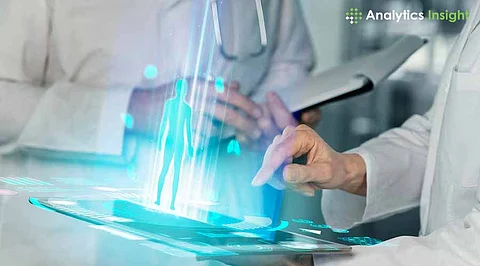

Artificial intelligence is no longer something out of science fiction in healthcare, it has arrived, and it is revolutionising how doctors diagnose illness, do research, and treat patients. Perhaps the most revolutionary development in this arena is Retrieval-Augmented Generation (RAG), a method that improves AI models by infusing real-time data retrieval from trusted sources. Unlike other AI models that only depend on pre-trained information, RAG equips systems with the ability to retrieve the newest medical knowledge, ensuring healthcare decisions are made using updated and trusted information. In an industry where accuracy and current knowledge can be matter of life and death, RAG is becoming a game-changer.
Clinical decision support enhancement for physicians: While engulfed with masses of medical information, it is difficult for physicians to catch up with the latest research when seeing patients. RAG empowers AI systems to alleviate this burden by sifting the most relevant clinical trials, electronic health records (EHRs), and real-time patient information into the diagnostic and treatment workflow.
For example, by the beginning of 2025, Microsoft successfully launched Dragon Copilot, which uses RAG for voice-enabled note-taking supported with real-time clinical hints that help ease the administrative burden for hospitals.
Facilitating medical research and drug discovery: Pharmaceutical industries and research organisations are using RAG to run huge datasets in a fraction of time ever before. AI-driven databases based on RAG have helped in the discovery of genetic markers responsible for diseases like Alzheimer’s reducing research times from weeks to days.
The Oxford Drug Discovery Institute study showcases how RAG-based tools facilitate better knowledge extraction from scientific literature, enhancing drug-target identification.
Enhancing patient engagement and education: Patients today demand more control over their healthcare, and RAG-powered AI tools are making personalised health insights more accessible. RAG systems enable AI chatbots, virtual assistants, and health apps to respond adequately to patient inquiries. This will help them understand more complicated matters about medical conditions as well as treatment options. Well-informed patients are more likely to comply with medical treatments; hence, there are stronger relationships between these patients and their physicians.
Mitigate Bias and Transparency with AI: The most relevant issue with AI medicine is that of bias, which can result in wrong diagnosis or wrong treatment; this is an issue in how RAG solves bias since AI answers are known to be based on different and verifiable sources hence always concluding from the sound facts than biased training datasets.
By 2025, MedRAG, which integrates knowledge graphs with the RAG model, would increase the accuracy of diagnosis for diseases with overlapping symptoms.
Increasing health care administrative effectiveness: Red tape and paperwork are commonplace in hospitals and clinics. Build RAG-powered AI systems that handle insurance claims, automate paperwork, and quickly retrieve patient records. As a result, healthcare workers have less work to do and can devote more time to patient care rather than paperwork.
The increasing need for AI-based administrative software is evidenced by the recent US$55 million investment in Navina, an AI-powered platform, to improve its RAG-integrated HER analysis.
Healthcare has been undergoing major AI-inspired changes, and RAG is an ever-increasingly important part of such medical innovations. There is immense potential in RAG in terms of diagnostics and even operational enhancement in healthcare. Though challenges still abound with regard to ethics, data privacy, and human intervention, Retrieval-Augmented Generation has, without a doubt, started to shape the future and has made that future smarter, faster, and more accurate for patients and healthcare workers.
